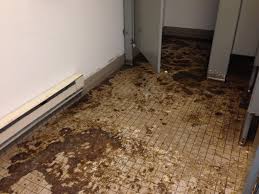Avoid Dangerous Sewage Hazards to Your Health
Sewage backup is not only a messy and unpleasant issue but also poses significant risks to human health and the environment. As wastewater from toilets, sinks, and drains accumulates and overflows into living spaces, it brings with it a host of pathogens, toxins, and pollutants that can cause serious health hazards and environmental contamination. In this comprehensive guide, we explore the risks associated with sewage backup, its potential health effects, environmental implications, prevention strategies, and proper cleanup procedures to safeguard both public health and the ecosystem.
Understanding Sewage Backup
Sewage backup occurs when wastewater from the sewer system flows back into homes, buildings, or outdoor areas due to blockages, pipe ruptures, or flooding. This wastewater, often referred to as “black water,” contains a mixture of human waste, chemicals, bacteria, viruses, parasites, and other harmful substances that pose significant health risks to humans and animals alike.
Health Hazards of Sewage Backup
Exposure to sewage backup can lead to a variety of health problems, ranging from mild irritations to severe infections and diseases. Inhalation of sewage fumes can cause respiratory issues, while direct contact with contaminated water can lead to skin rashes, gastrointestinal illnesses, and even life-threatening infections such as E. coli, Salmonella, and Hepatitis A. Vulnerable populations, including children, the elderly, and individuals with compromised immune systems, are particularly susceptible to the adverse health effects of sewage exposure.
Environmental Concerns
Beyond its impact on human health, sewage backup poses significant environmental concerns. When untreated sewage enters water bodies, it contaminates aquatic ecosystems, disrupts natural habitats, and threatens the health of aquatic organisms. Nutrient-rich sewage runoff can lead to algal blooms, oxygen depletion, and the spread of waterborne diseases, compromising the ecological balance and biodiversity of affected ecosystems. Moreover, sewage backup can contaminate soil, groundwater, and agricultural lands, posing long-term environmental risks and challenges for remediation and restoration efforts.
Prevention Strategies
Preventing sewage backup requires proactive measures to maintain the integrity and functionality of the sewer system and household plumbing infrastructure. Regular inspections, maintenance, and repairs of sewer lines, septic systems, and drainage systems can help identify and address potential issues before they escalate into full-blown backups. Installing backwater valves, sump pumps, and sewer line cleanouts can provide additional protection against sewage backups during heavy rainfall or flooding events. Educating homeowners, businesses, and communities about proper waste disposal practices and the importance of sewer system maintenance is essential for preventing sewage-related disasters and promoting public health and environmental stewardship.
Proper Cleanup and Remediation
In the event of sewage backup, prompt and thorough cleanup and remediation are crucial to minimize health risks, prevent further damage, and restore affected areas to a safe and habitable condition. Professional cleanup and restoration services equipped with specialized equipment, protective gear, and disinfection agents can safely remove sewage, sanitize contaminated surfaces, and deodorize indoor environments. Proper disposal of sewage-contaminated materials, including carpets, furniture, and drywall, is essential to prevent the spread of pathogens and secondary contamination. Adequate ventilation, drying, and dehumidification are necessary to prevent mold growth and ensure the long-term integrity of the restored property.
We can minimize the occurrence and impact of sewage-related disasters and create healthier, safer, and more resilient communities for generations to come. If you need help with sewage cleanup do not hesitate to call on the professional services of the sewage cleanup professionals, The CleanUP Guys.

